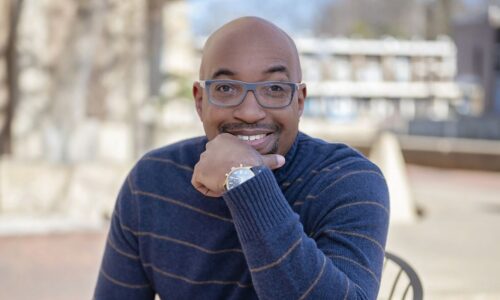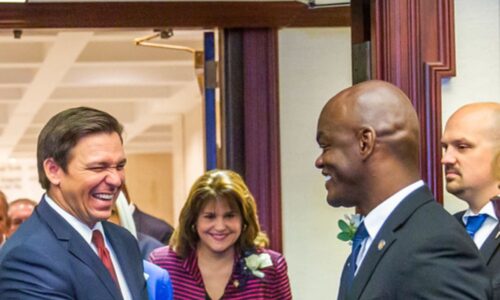Believe it or not, Presidential hopeful Donald Trump has come to the defense of African-American students, after controversial statements by Justice Antonin Scalia regarding their abilities while attending college.
“It does not benefit African-Americans to get them into the University of Texas where they do not do well, as opposed to having them go to a less-advanced school, a slower-track school where they do well,” Supreme Court Justice Antonin Scalia said during arguments for the Fisher v. University of Texas at Austin case.
Justice Scalia claimed that “most of the black scientists in this country do not come from the most advanced schools.”
“They come from lesser schools where they do not feel that they’re being pushed ahead in classes that are too fast for them,” Justice Scalia said, drawing widespread condemnation in the process.
“I thought it was very tough to the African-American community, actually. I don’t like what he said. No, I don’t like what he said. I heard him, I was like, ‘Let me read it again’ because I actually saw it in print, and I’m going — I read a lot of stuff — and I’m going, whoa!'” Donald Trump to CNN’s Jake Tapper
 Nicole Smith, Georgetown Center’s Chief Economist Nicole Smith, Georgetown Center’s Chief Economist |
Justice Scalia didn’t just upset Donald Trump, the man who has pissed off half of the world with his own racist comments about immigrants and Muslims. Justice Scalia is also feeling the heat from experts, who have shot down his assessment that African-American students are inferior.
Georgetown University also took aim at Supreme Court Justice Antonin Scalia’s suggestions, saying his comments don’t reflect the “empirical research on the subject”
In prior research, Georgetown Center economists have found that students at more selective colleges, including black and Hispanic students, have higher graduation rates regardless of their level of academic preparation.
“Justice Scalia is making the tired argument that admitting African-American students into white schools is akin to putting ponies in a horse race,” said Nicole Smith, the Georgetown Center’s chief economist. “Like so many, Justice Scalia mistakes African-American as a proxy for low readiness, when in fact minority students in more selective colleges and universities not only graduate at relatively higher rates, but also secure high-paying jobs thereafter.”
Prior research by the Georgetown Center finds that:
-
Graduation rates double for African-American and Hispanic students who move from open-access colleges to more selective colleges.
-
After Texas instituted its Top 10 Percent rule in 1997, which guaranteed admission to public universities in Texas to the top 10 percent of each graduating high school class in the state, graduation rates increased, despite lower preparedness among University of Texas students.
“If Scalia’s theory were true, equally prepared students of all races would do worse at more selective colleges,” said Anthony P. Carnevale, the Georgetown Center’s director. “In fact, we find the opposite is true.”




